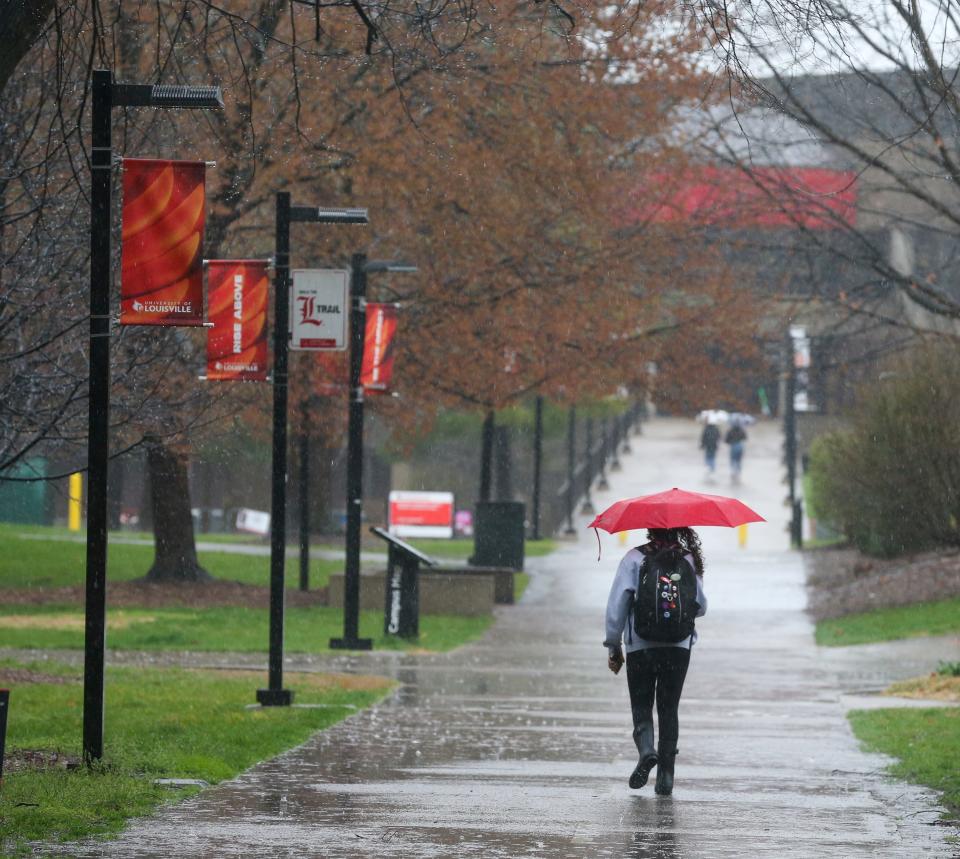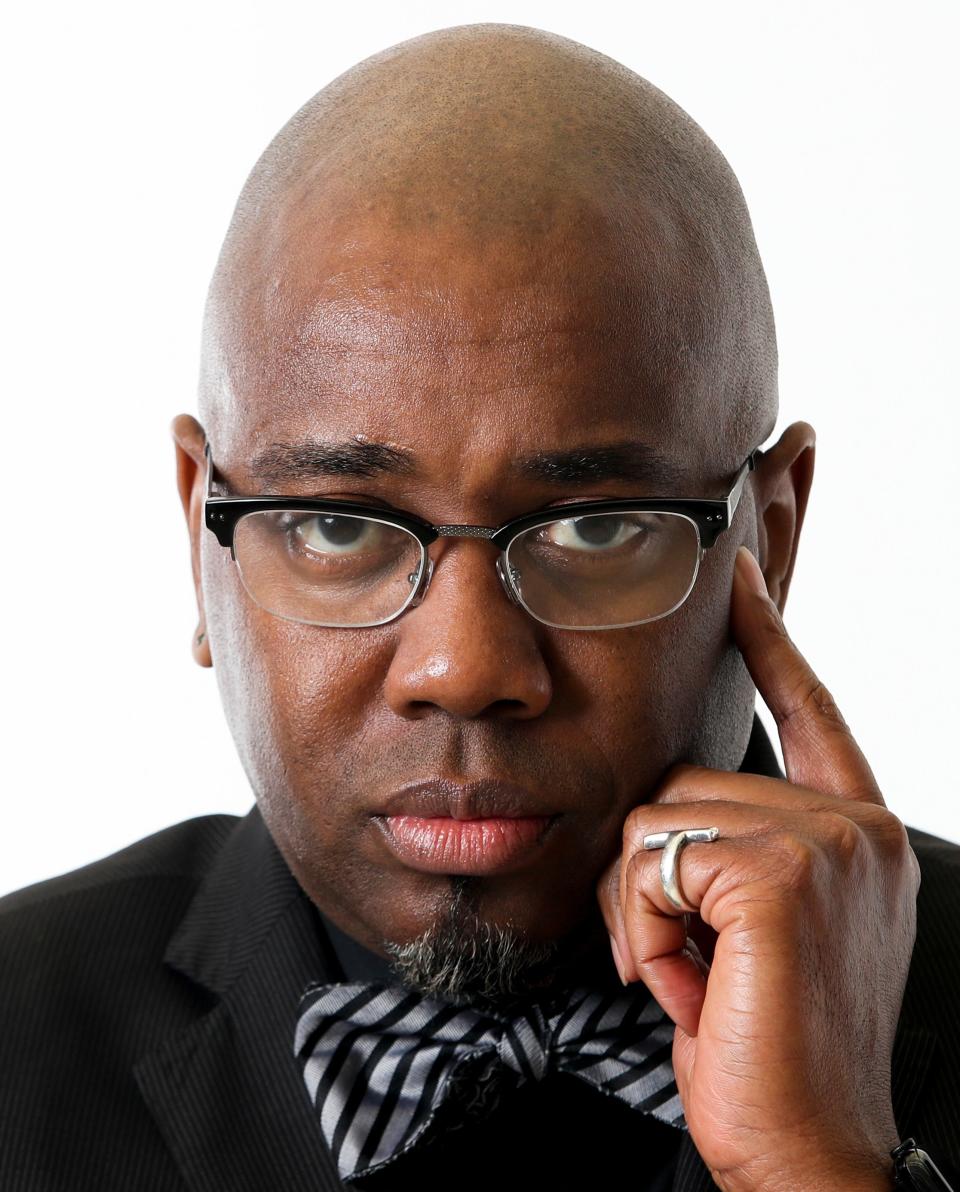Ricky Jones: Will post affirmative action U of L really come through for Black students?
When the uber-conservative U.S. Supreme Court killed affirmative action in June, some predominantly white educational institutions did what they sometimes do when attacks on Black people become too blatant to ignore - they released statements. The University of Louisville was among that number.
U of L wrote, “Today, the United States Supreme Court declared that colleges and universities can no longer consider an applicant's race when evaluating their application for admission. As the most diverse non-HBCU among Kentucky's public colleges and universities, U of L will continue to be committed to diversity among our students, faculty and staff. Celebrating our differences and learning from one another only makes our university and our society stronger. Through legally permissible means, we will continue to foster and sustain an environment of inclusiveness that empowers all to achieve their highest potential.”
Really?
Those of us familiar with U of L knew this was little more than propaganda, very similar to the school’s now defunct commitment to becoming the “nation’s premier anti-racist university” in 2020.

Black diversity professionals don’t hold U of L to account.
The reality is there was very little evidence of serious institutional commitment on the part of U of L to help Black students, faculty and staff “achieve their highest potential” before the death affirmative action. So, why would a reasonable person believe it will do better after affirmative action’s demise? Now the school’s leaders just have another arrow in their quiver of excuses. They can simply say, “We’d love to do this, that, or the other for Black students, faculty and staff. But the reality is, we can’t. It’s illegal.”
U of L’s so-called commitment to diversity has fallen woefully short where Black people are concerned for some time. And don’t look to most of the school’s current crop of Black leaders for help. You won’t find it. Even some of its so-called Black diversity professionals don’t hold the school to account. As E. Franklin Frazier warned us many years ago in “Black Bourgeoisie”, the lion’s share of the Black people who move up at U of L are the type who are more concerned about their personal positions than with collective Black progress.
They forget, never knew, or do not care that the largely empty term “diversity” was deployed by Harvard professor Archibald Cox when white people wailed after affirmative action and other legislative decisions were enacted to specifically help Black people combat the consequences of institutional white supremacy in the 1970s. A number of these Black Americans now parrot the conservative argument, “We shouldn’t concentrate on Black people too much. Diversity is about more than that. It’s divisive.” All is lost when that comes from a Black diversity leader.
Interestingly, some have even abandoned the “diversity” term as white resistance has mounted. They now call themselves “equity” or “belonging” officers. They seem to think the haters of Black people will leave them alone if they change their titles and talk about Black people less. Maybe they’re right.
It gets worse. These Black administrators and their white superiors also cast Black people on their campuses who argue that something is very, very wrong and more should be done to specifically target Black suffering as misguided radicals, troublemakers and malcontents who are, apparently, making it all up. “We’re doing just fine; better than we ever have,” they’ll tell you. They’re lying.
This may also interest you: University of Louisville botches salary restructuring, raising union fever on campus
Black faculty numbers have plummeted at University of Louisville
The sad fact of the matter is Black faculty numbers have plummeted at U of L as the environment has become increasingly unwelcoming. The school’s 50-year-old Black Studies department (now called Pan-African Studies) has been left to wither budgetarily and personnel-wise as the University refuses to replenish its faculty. Black students who are mature enough to know what is going on around them feel uneasy and isolated. A sad example was when one talented young Black woman said she was transferring from U of L last year because she was “tired of feeling like Ruby Bridges.” (By the way, Ruby Bridges has been contested and removed from some American K-12 school systems).
All this was the case at U o L before Clarence Thomas and his friends validated the anti-Black attacks of Edward Blum and killed affirmative action. And only a fool believes this will be limited to college admissions.
Questions for U of L about how they support Black students
So, the next time you see a flaccid support statement from places like U of L after Black people and our children are targeted, call the president and ask for a meeting. If they respond and meet with you, ask what their Black student retention and graduation rates are? Ask whether or not they have curriculum requirements that substantively teach about the Black experience? Ask if they’re as serious about recruiting young Black intellectuals and professors as they are about recruiting Black football and basketball players who are lining their pockets? Ask what specific plans they have to address those issues and more.
If U of L’s and other PWI leaders can’t answer you without playing rhetorical games and making excuses, quote James Baldwin to them. Simply tell them, “I can’t believe what you say, because I see what you do” – and send your children and support somewhere else.

Dr. Ricky L. Jones is the Baldwin-King Scholar-in-Residence at the Christina Lee Brown Envirome Institute and Professor of Pan-African Studies, University of Louisville. His column appears bi-weekly in the Courier-Journal. Follow him on Threads, Facebook, X, and LinkedIn.
This article originally appeared on Louisville Courier Journal: affirmative action, Black students, predominately white institutions

